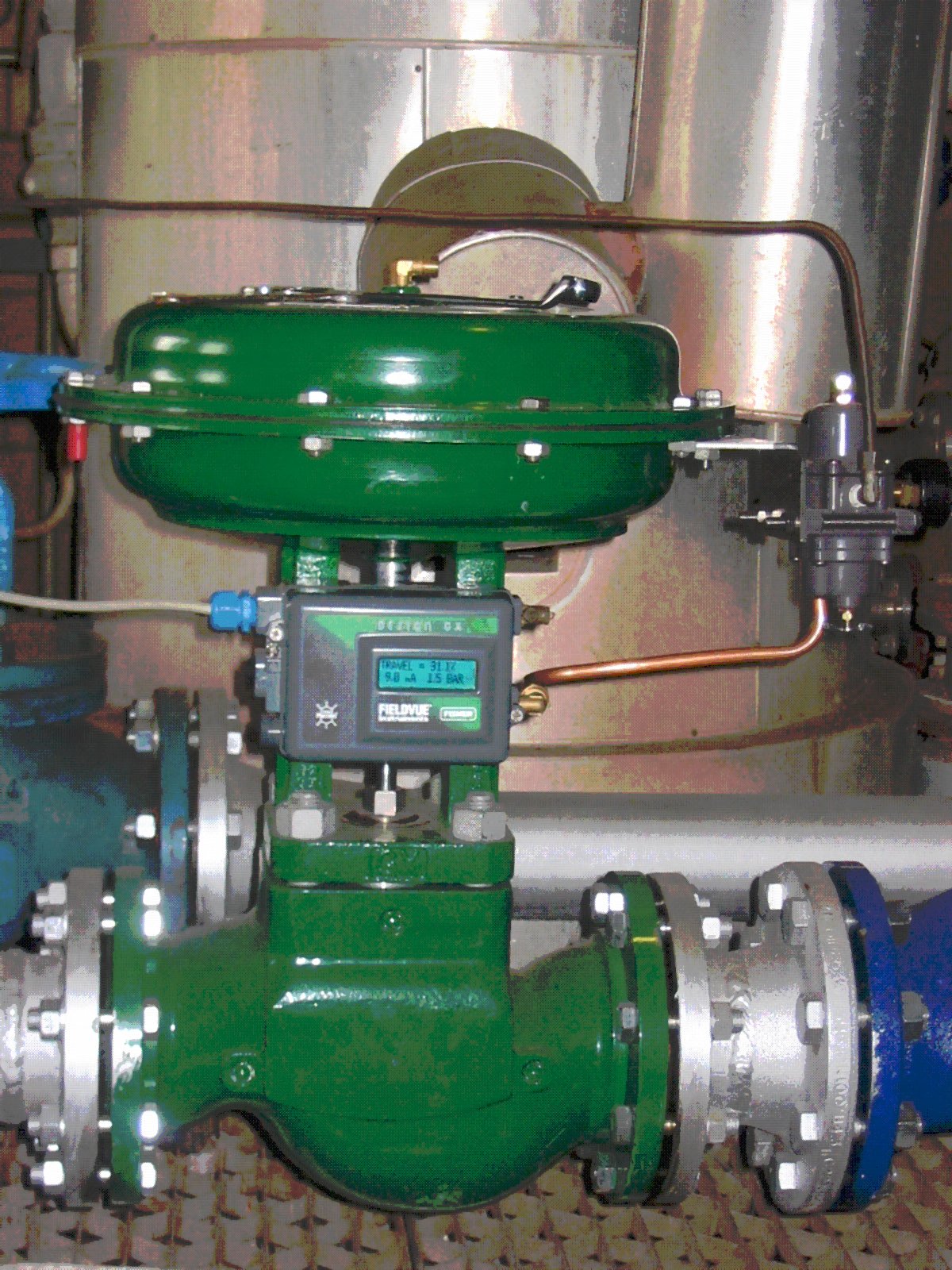
Custom Search
Wednesday, December 8, 2010
Instrumentation is defined as the art and science of measurement and control.
An instrument is a device that measures and/or regulates process variables such as flow, temperature, level, or pressure. Instruments include many varied contrivances which can be as simple as valves and transmitters, and as complex as analyzers. Instruments often comprise control systems of varied processes such as refineries, factories, and vehicles. The control of processes is one of the main branches of applied instrumentation. Instrumentation can also refer to handheld devices that measure some desired variable. Diverse handheld instrumentation is common in laboratories, but can be found in the household as well. For example, a smoke detector is a common instrument found in most western homes.
Output instrumentation includes devices such as solenoids, valves, regulators, circuit breakers, and relays. These devices control a desired output variable, and provide either remote or automated control capabilities. These are often referred to as final control elements when controlled remotely or by a control system.
Transmitters are devices which produce an output signal, often in the form of a 4–20 mA electrical current signal, although many other options using voltage, frequency, pressure, or ethernet are possible. This signal can be used for informational purposes, or it can be sent to a PLC,DCS, SCADA system, or other type of computerized controller, where it can be interpreted into readable values and used to control other devices and processes in the system.
Control Instrumentation plays a significant role in both gathering information from the field and changing the field parameters, and as such are a key part of control loops.
History
In the early years of process control, process indicators and control elements such as valves were monitored by an operator that walked around the unit adjusting the valves to obtain the desired temperatures, pressures, and flows. As technology evolved pneumatic controllers were invented and mounted in the field that monitored the process and controlled the valves. This reduced the amount of time process operators were needed to monitor the process. Later years the actual controllers were moved to a central room and signals were sent into the control room to monitor the process and outputs signals were sent to the final control element such as a valve to adjust the process as needed. These controllers and indicators were mounted on a wall called a control board. The operators stood in front of this board walking back and forth monitoring the process indicators. This again reduced the number and amount of time process operators were needed to walk around the units. The basic air signal used during these years was 3-15 psig.
In the 1970s electronic instrumentation began to be manufactured by the instrument companies. Each instrument company came out with their own standard signal for their instrumentation, 10-50ma, 0.25-1.25Volts, 0-10Volts, 1-5volts, and 4-20ma, causing only confusion until the 4-20ma was universally used as a standard electronic instrument signal for transmitters and valve.The transformation of instrumentation from mechanical pneumatic transmitters, controllers, and valves to electronic instruments reduced maintenance costs as electronic instruments were more dependable than mechanical instruments. This also increased efficiency and production due to their increase in accuracy.
The next evolution of instrumentation came with the production of Distributed Control Systems (DCS). The pneumatic and electronic control rooms allowed control from a centralized room, DCS systems allowed control from more than one room or control stations. These stations could be next to each other or miles away. Now a process operator could sit in front of a screen and monitor thousands of points throughout a large unit or complex.
Measurement
Instrumentation is used to measure many parameters (physical values). These parameters include:
Pressure, either differential or static
Flow
Temperature
Levels of liquids etc.
Density
Viscosity
Other mechanical properties of materials
Properties of ionising radiation
Frequency
Current
Voltage
Inductance
Capacitance
Resistivity
Chemical composition
Chemical properties
Properties of light
Vibration
Weight
Control
In addition to measuring field parameters, instrumentation is also responsible for providing the ability to modify some field parameters.
Instrumentation engineering
Instrumentation engineering is the engineering specialization focused on the principle and operation of measuring instruments which are used in design and configuration of automated systems in electrical, pneumatic domains etc. They typically work for industries with automated processes, such as chemical or manufacturing plants, with the goal of improving system productivity, reliability, safety, optimization, and stability. To control the parameters in a process or in a particular system, devices such as microprocessors, microcontrollers or PLCs are used, but their ultimate aim is to control the parameters of a system.
Instrumentation technologists and mechanics
Instrumentation technologists, technicians and mechanics specialize in troubleshooting and repairing and maintenance of instruments and instrumentation systems. This trade is so intertwined with electricians, pipefitters, power engineers, and engineering companies, that one can find him/herself in extremely diverse working situations.
Read more...
Subscribe to:
Comments (Atom)
Basics of Instrumentation & Control
Pressure
Flow
Level
Temperature
Analytical Instrumentation
Labels
Analytical Instrumentation
(7)
Automation
(4)
Basics
(48)
Control elements
(2)
DCS
(1)
Flow
(27)
Flow Meters
(22)
Instrumentation Career
(2)
Level
(19)
P and I Diagram
(1)
PLC
(2)
Pressure
(12)
Process Control
(5)
Process Control Systems
(6)
SCADA
(2)
Sensors
(7)
Temperature
(17)
Transducer
(17)
Virtual Instrumentation
(1)














